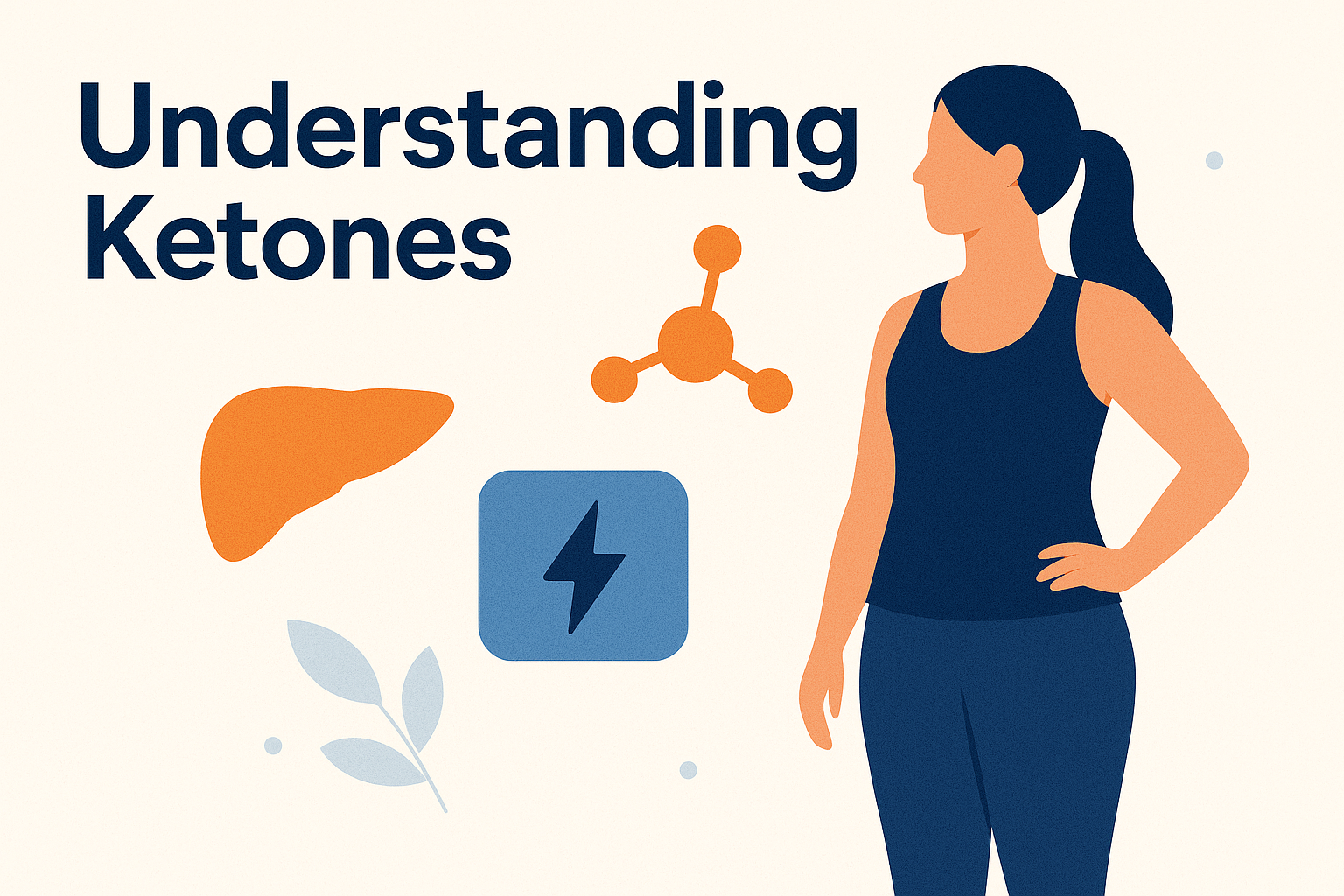
Introduction to Ketones: The Unsung Heroes of Energy Production
Eating a ketogenic diet or fasting for some time leads to a big shift in your body's metabolism. Whenever the brain uses fat for energy then it creates unique materials called ketones. They are quite important for creating energy and supporting different functions in the body.
Let's have a closer look by exploring their creation, how they work and the possible benefits they bring to health.
What Are Ketones, and How Are They Produced?
Ketones are water-soluble molecules that are produced by the liver from fatty acids during periods of low carbohydrate availability or prolonged fasting. There are three major types of ketones in the body.
- Acetoacetate (AcAc): It is the ketone body formed first in the ketosis process.
- Beta-hydroxybutyrate (BHB): Beta-hydroxybutyrate (BHB) is found in the highest amounts and is very stable in the bloodstream.
- Acetone: Acetone is mainly excreted as a waste product through the breath and urine when there is too much of the ketone substance.
If there are few carbohydrates in your diet, the body switches to burning fat, produces ketones and uses those in many places especially the brain.
The Role of Ketones in Energy Production
In times when glucose is running low then ketones support the body as an alternative source of fuel. Here's the way ketones assist in energy production in the body.
- Brain Fuel: Fatty acids do not supply energy directly to the brain as it requires glucose instead. Still, ketones may get through the blood-brain barrier to supply the brain with extra energy and keep mental function at the proper level.
- Muscle Fuel: During prolonged exercise or periods of low carbohydrate availability, muscles can utilize ketones as an additional fuel source, sparing glucose and glycogen stores.
- Cellular Energy: Ketones can be metabolized by various tissues including the heart, liver and kidneys to produce adenosine triphosphate (ATP), the cellular energy currency.
Ketones make sure that important tissues like red blood cells and parts of the brain have enough glucose for their use.
Potential Health Benefits of Ketones
Though additional studies are required, current evidence reveals that it might have additional health benefits apart from helping power the body. Some benefits that may occur are:
- Weight Management: Ketogenic diets are known to result in weight loss thanks to their effect on making you feel fuller and regulating your appetite hormones.
- Neuroprotection: Ketones show signs of protecting brain cells and they may have a positive effect on conditions such as Alzheimer's disease, Parkinson's disease and epilepsy.
- Improved Insulin Sensitivity: When glucose and insulin are low then improved insulin sensitivity can result from it and may aid diabetes or metabolic patients.
- Anti-inflammatory Properties: Ketones have been suggested by some studies to reduce inflammation throughout the body which might make them helpful for managing persistent inflammatory diseases.
It's important to note that while these potential benefits are promising, more research is needed to fully understand the mechanisms and implications of ketones on human health.
Achieving Ketosis and Monitoring Ketone Levels
For your body to produce ketones, you either need to follow a ketogenic diet or keep eating very little for an extended period of time. A ketogenic diet is a way of eating with fewer carbs and more fats that burns out the body's glycogen then causing it to use fat for energy.
Several ways to monitor ketone levels and make sure you are in a state of ketosis are available.
- Blood Ketone Meters: These provide accurate and precise measurements of beta-hydroxybutyrate (BHB) levels in the blood.
- Urine Ketone Strips: Though urine strips are not very precise, you can use them to find out if you have a high level of ketones.
- Breath Ketone Analyzers: These devices test for acetone in your breath and are used to show if your body is in ketosis.
It's important to work with a qualified healthcare professional or nutritionist to develop a safe and sustainable plan for achieving and maintaining ketosis with a trained healthcare expert or nutritionist.
Conclusion: Embracing Ketones as a Powerful Metabolic Tool
Ketones prove that the body is impressive in its ability to adapt to various situations. If carbohydrates are not available, the body knows how to produce other types of energy and keep itself going.
If we understand their role in our body, we can use them to strengthen our health and general well-being. Anyone focused on weight management, improving mental skills or for medical purposes can find them to be very interesting and encouraging.
However, it's essential to approach ketosis and ketone production under the guidance of qualified professionals as individual responses and requirements may vary. When you understand ketones and get helpful advice, living by it can open the door to better health.